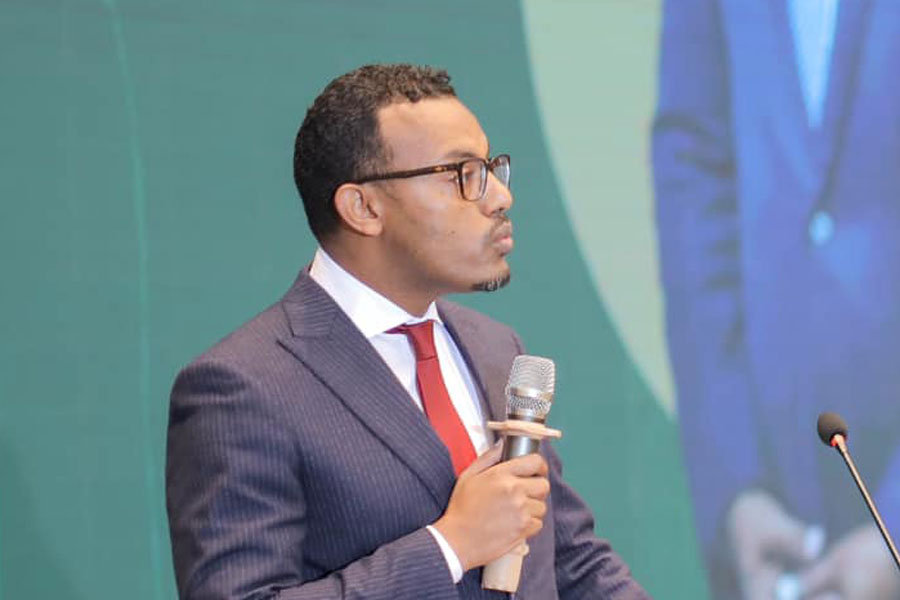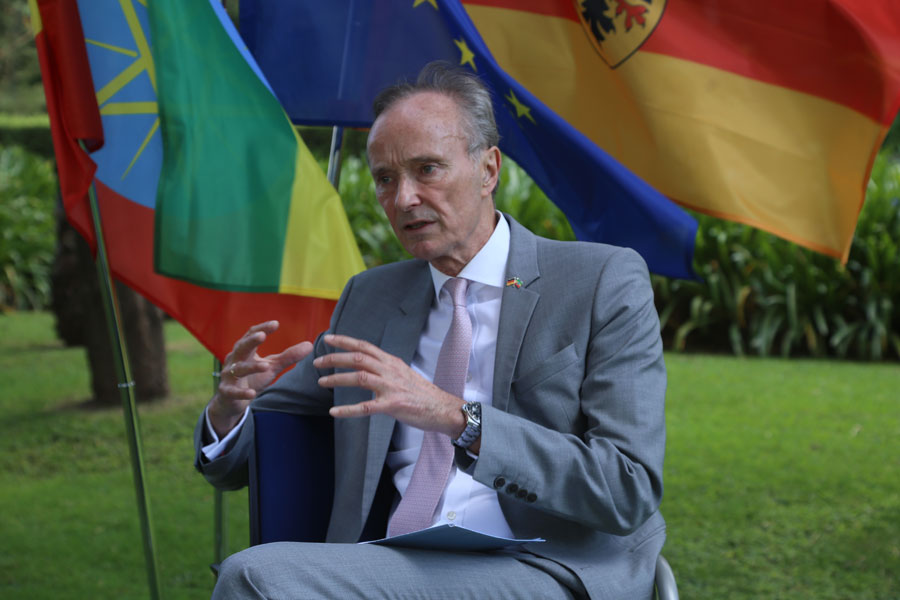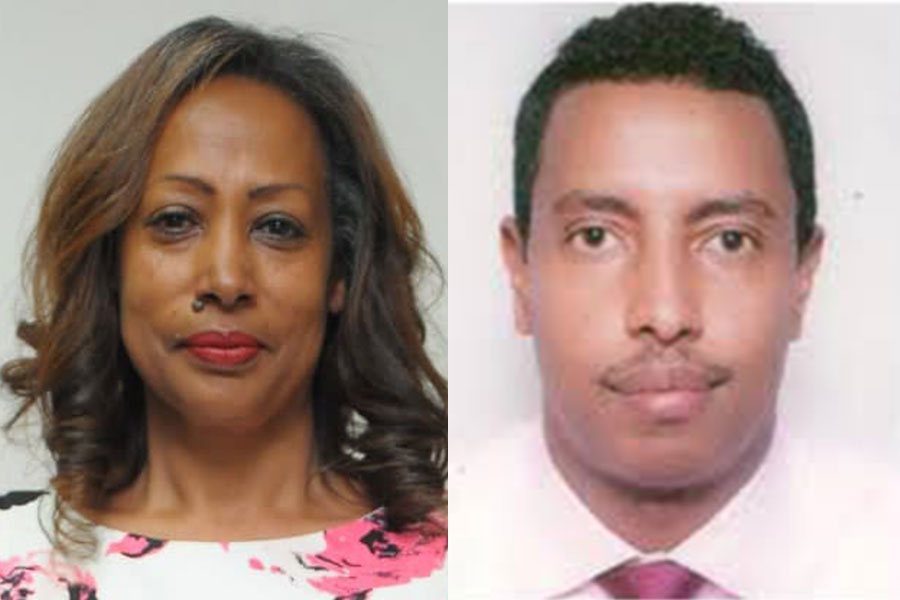
Fortune News | Aug 10,2019
Jan 26 , 2019
By Eden Sahle
Almost every parent hopes their children will turn out to be upstanding citizens and successful individuals. Many believe that this is a matter of having to inculcate into their children’s psyche the “right” spiritual lessons, sending them to good schools and helping them get honest friends.
There is some truth to such efforts by parents, but without the proper environment within the home, they will be for naught.
Parenting behaviour is a complex of physiological processes and psychological drives which are greatly influenced and modified by cultural norms and individual experiences.
It is more than an instinctive response - it is a learned behaviour. In most cases, parents are much like their parents. Those that have been abused in childhood, either physically or mentally, have a higher chance of abusing their offspring. Children of such parents usually develop low self-esteem. There is also role reversal, with the child being expected to give sympathetic comfort and financial support to the parent.
Parents that suffer from mental health issues such as clinical depression are more likely to be involved in cases of child abuse. Child neglect, other forms of maltreatment and verbal abuse are also more common in families living in poverty and among parents who abuse drugs or alcohol.
This is doubly unfair given that it is children that are not provided with enough food, clothing, shelter or medical care by their parents that are also deprived of affection.
Emotional and psychological abuse and neglect deny the child the needed support to cope with stress and to learn new skills to become resilient and successful in life. Children who are maltreated are more likely to grow up to use drugs or alcohol, run away, refuse to abide by the law and abuse others.
Usually the younger the child, the longer the abuse continues, and the closer the child’s relationship with the abuser, the more serious the mental health effects will be.
I know of two sisters who have been through physical and psychological abuse by their parents. One of the girls was raped when she fled punishment. The crime was never reported, and she was blamed for what happened to her.
Their stories were horrifying for me to listen to. They were prevented from going to school, not allowed to eat and beaten almost daily. They had a mother who never wanted to have girls, thus they grew up being spoken to in ways that children should not be. They had severe suicidal tendencies and suffered from major bouts of depression.
Such stories can only surprise a few, for they are not unheard of in the places the victims sometimes turn to - hospitals, courts and schools.
Children will not become emotionally healthy adults out of the blue. They can be inspired, equipped and mobilised to make a difference in their lives, but only if schools and communities have put in the work. As they say, it takes a village to raise a child.
But parents take the lion’s share of the responsibility. Thus, they should have solid moral and ethical foundations, compassion, integrity and commitment.
This is all the more crucial in Ethiopia, where children do not have the proper institutional and legal systems to fall back on when the problem is their parents. It gets worse as a result of a culture that holds family life to great significance, even if it is at the expense of the well being of members of the family. Community members often fail to report to the authorities for fear of falling out with their social groups. This aggravates the problem and leaves children to bear abuse until they become broken shells of the individuals they could have been.
Child protection policies and laws in Ethiopia ought to be effectively implemented to protect children and allow them to exercise their full rights. Without taking actions, it is hard to expect that the laws and TV ads in themselves will put an end to child trafficking, labour and sexual abuse.
The most important thing we can do for children is to help them exercise their human rights and provide them with values they can rely on throughout their lives. In this way, they will have the best chance to lead healthy lives as individuals and citizens.
Society must collaborate for child protection to thrive in Ethiopia. One of the most effective means is addressing the taboo of poor parenting skills that exist in Ethiopia.
PUBLISHED ON
Jan 26,2019 [ VOL
19 , NO
978]

Fortune News | Aug 10,2019

Viewpoints | May 20,2023

Sunday with Eden | Jun 27,2020

Viewpoints | May 31,2025

Fortune News | Jul 11,2021

Radar | Mar 02,2024

Fortune News | Nov 16,2024

Exclusive Interviews | Oct 21,2023

Viewpoints | May 16,2020

Fortune News | Sep 10,2021

My Opinion | 132041 Views | Aug 14,2021

My Opinion | 128437 Views | Aug 21,2021

My Opinion | 126364 Views | Sep 10,2021

My Opinion | 123987 Views | Aug 07,2021





Dec 22 , 2024 . By TIZITA SHEWAFERAW
Charged with transforming colossal state-owned enterprises into modern and competitiv...

Aug 18 , 2024 . By AKSAH ITALO
Although predictable Yonas Zerihun's job in the ride-hailing service is not immune to...

Jul 28 , 2024 . By TIZITA SHEWAFERAW
Unhabitual, perhaps too many, Samuel Gebreyohannes, 38, used to occasionally enjoy a couple of beers at breakfast. However, he recently swit...

Jul 13 , 2024 . By AKSAH ITALO
Investors who rely on tractors, trucks, and field vehicles for commuting, transporting commodities, and f...

Jul 12 , 2025
Political leaders and their policy advisors often promise great leaps forward, yet th...

Jul 5 , 2025
Six years ago, Ethiopia was the darling of international liberal commentators. A year...

Jun 28 , 2025
Meseret Damtie, the assertive auditor general, has never been shy about naming names...

Jun 21 , 2025
A well-worn adage says, “Budget is not destiny, but it is direction.” Examining t...

Jul 13 , 2025 . By YITBAREK GETACHEW
The Addis Abeba City Revenue Bureau has introduced a new directive set to reshape how...

Jul 13 , 2025 . By BEZAWIT HULUAGER
Addis Abeba has approved a record 350 billion Br budget for the 2025/26 fiscal year,...

Jul 13 , 2025 . By RUTH BERHANU
The Addis Abeba Revenue Bureau has scrapped a value-added tax (VAT) on unprocessed ve...

Jul 13 , 2025 . By NAHOM AYELE
Federal lawmakers have finally brought closure to a protracted and contentious tax de...